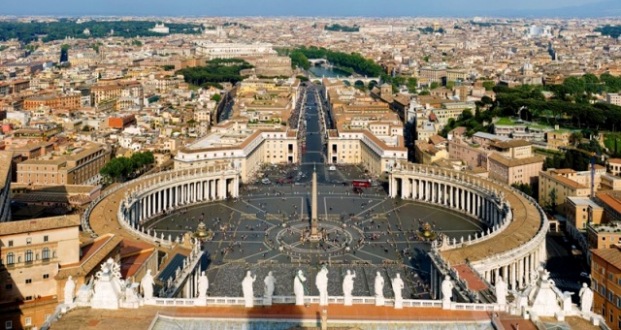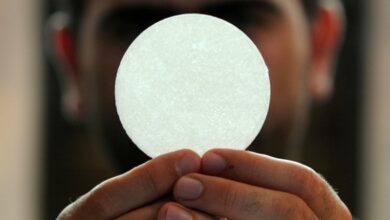Who Do You Say I AM? – A Profession of Faith

In the Catholic tradition, this is a seminal text for a whole range of reasons as you’ll see in this homily. We also understand in terms of interpreting, what we will call the liturgical reading of the text. The first reading is always to interpret the gospel reading, and to understand the gospel today, you really have to understand the context of this first reading because that’s how we begin to understand what the gospel is speaking to, and the action of Jesus in the gospel text.
So in our first reading from Isaiah 22, you have the king dismissing a servant whose name is Shebna, and he’s being dismissed because of his disloyalty; he’s being dismissed because he was not a man of God; he was being dismissed because his life wasn’t right with God, and the king was dissatisfied because of his life and therefore he’s dismissing him. In his place, he’s putting Eliakim to take up that office. This first part is very important for us to understand. This person Shebna is not doing something in his own name and in his own right, he’s doing it because he’s holding an office within the kingdom of Israel. That’s the first piece of the text that must be understood. Not only is he holding an office, but when he is dismissed, on the same day, a new officeholder must be put in place.
Now, what does this office consist of? Well, this person is the one who will hold the keys of the kingdom. (Are you getting the connection with the gospel as yet?) Holding the keys. The King said, “I will vest him in your robe, and gird him with your sash, and I entrust him with your authority. He shall be father.” Now there’s a good reason why we call the pope the pope because it comes from papa – papa father. “He shall be a father to the inhabitants, and to the house of Judah. I place the keys of the House of David on his shoulder.” In other words, around your neck. Should you open, no one will close, and should you close, no one will open. So Eliakim is given this office to be father, it’s an office to open, and to close. It’s an office where he’s given keys for the office. “I will drive him like a peg into a firm place, and he will become a throne of glory for his father’s house.”
So this person is second in command only to the king. So you have the king, then you have this officeholder. It’s like the Overlord of the whole kingdom, and that’s the background of our text. It’s the only place in the whole of scriptures that talks about keys being given, where binding and loosing will take place.
Now as we switch to our gospel reading with Jesus. So they go to Caesarea Philippi, the remotest part of Israel, furthest away from Jerusalem, just in the foothills before Lebanon, and Jesus is talking about ‘who do people say I am.’ The disciples are coming up with various answers, then it is Peter who says, “you are the Christ; you are the Son of the Living God.” Now I want to unpack that a little bit for you. Christos, that’s the Anointed One, that’s the one that the whole of Israel has been expecting to come for a long while. The whole ferment of Israel was when would the Messiah come, and what would he look like, and what would he do, and how would it be, and all of Israel is buzzing around the Messiah coming. Peter recognizes in Jesus Christ a man, that he is the Messiah, the Christ, the Expected One. Peter recognizes more than that because he goes on to say, “You are the Christ, the Son of the Living God.” Son of the Living God is a different title. It is a divine title. Peter is saying that you are of God, you are God. In this Son of the Living God, Peter is recognizing that Jesus is both the Christ the one who is to come, and also that he is God.
We have these two bits of revelation that’s coming through Peter in this text, and both are important because the Messiah could be a human figure, but in this case, Peter is saying no, the Messiah is actually a divine figure, and this human being that looks like flesh and blood in front of our eyes, is actually God – the Son of God. This revelation is very important, and as we go forward now, to say that there’s something true about what Peter says, Jesus says you are a happy man because it was not flesh and blood that revealed this to you, but my Father in Heaven. In other words, Jesus is confirming the revelation of Peter that sees Jesus both as Christ and as God.






